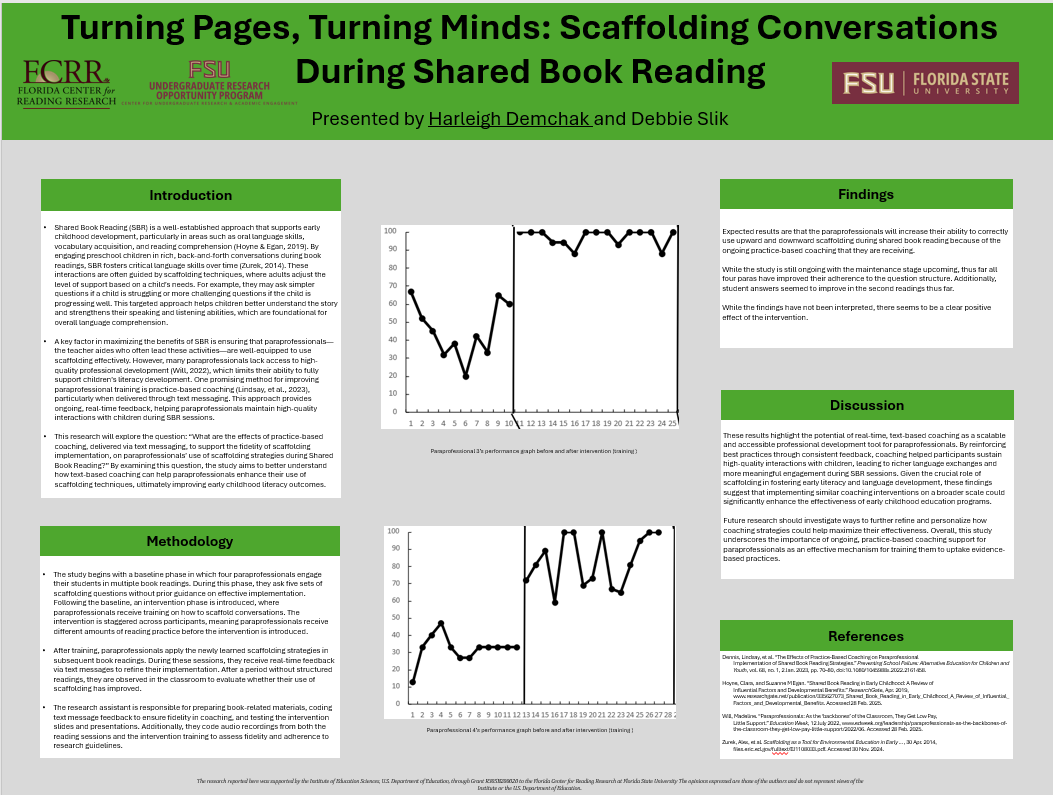Research Symposium
25th annual Undergraduate Research Symposium, April 1, 2025
Harleigh Demchak Poster Session 3: 1:45 pm - 2:45 pm/ Poster #107

BIO
I am an undergraduate student from Orlando majoring in economics pursuing an interest in law. I am passionate about researching different areas of social sciences and education, due to their many implications.
Turning Pages, Turning Minds: Scaffolding Conversations During Shared Book Reading
Authors: Harleigh Demchak, Deborah SlikStudent Major: Economics
Mentor: Deborah Slik
Mentor's Department: Reading Education and Language Arts Mentor's College: Anne Spencer Daves College of Education, Health, and Human Sciences Co-Presenters:
Abstract
This research explores the question: “What are the effects of practice-based coaching, delivered via text messaging to support fidelity of scaffolding implementation, on paraprofessionals' use of scaffolding strategies during shared book reading?”. Paraprofessionals in early childhood classrooms often lack access to effective professional development. Practice-based coaching is a promising approach to train them in implementing scaffolded conversations, which supports evidence-based literacy practices. Shared book reading is an effective method for developing oral language skills, like speaking and listening, which improves language comprehension in preschoolers. The method involves baseline readings where paraprofessionals ask their students five sets of questions, without guidance on effective use. After this, an intervention stage introduces how to scaffold conversations. Paraprofessionals then practice these strategies in subsequent readings. Following a few days without readings, they are observed in the classroom to assess if their use of scaffolding has improved. The research assistant role includes preparing materials for the books, coding text messages to ensure fidelity in coaching, and testing the intervention slides and presentation. In addition, coding fidelity for audio recordings of both the readings and the intervention training, ensures adherence to research guidelines. The expected results are that the paraprofessionals will improve their use of scaffolding strategies because of the text message coaching. This will likely enhance their ability to support student comprehension and provide evidence-based tools for improving their teaching effectiveness.
Keywords: Education, Reading, Communication

